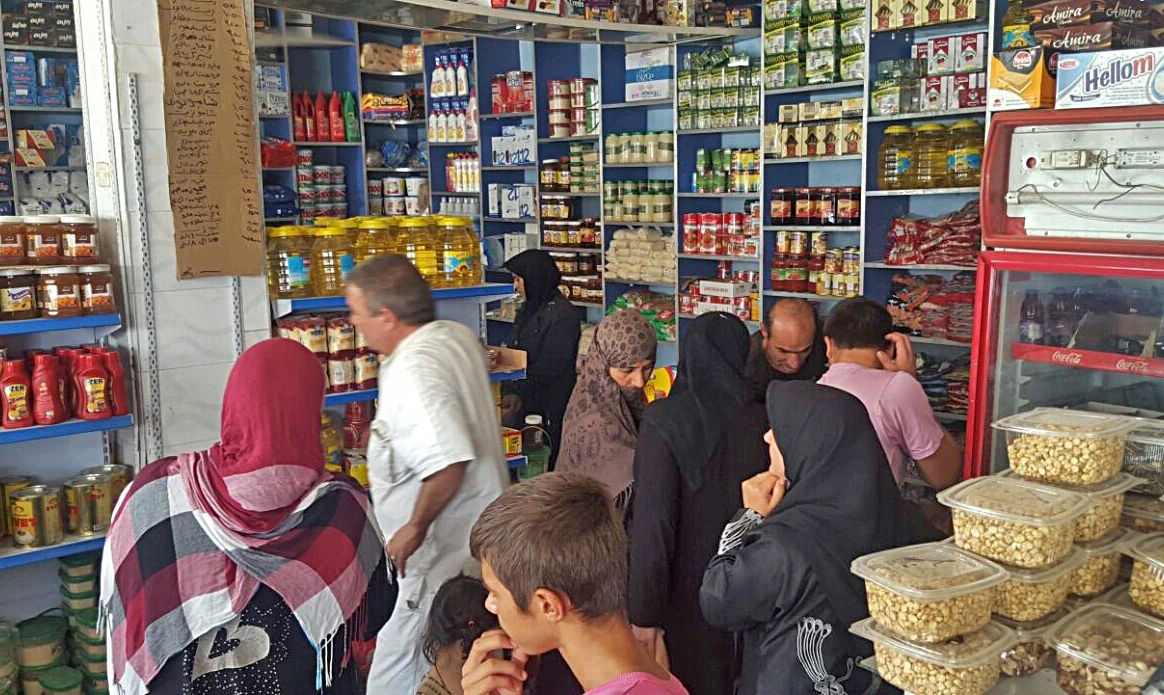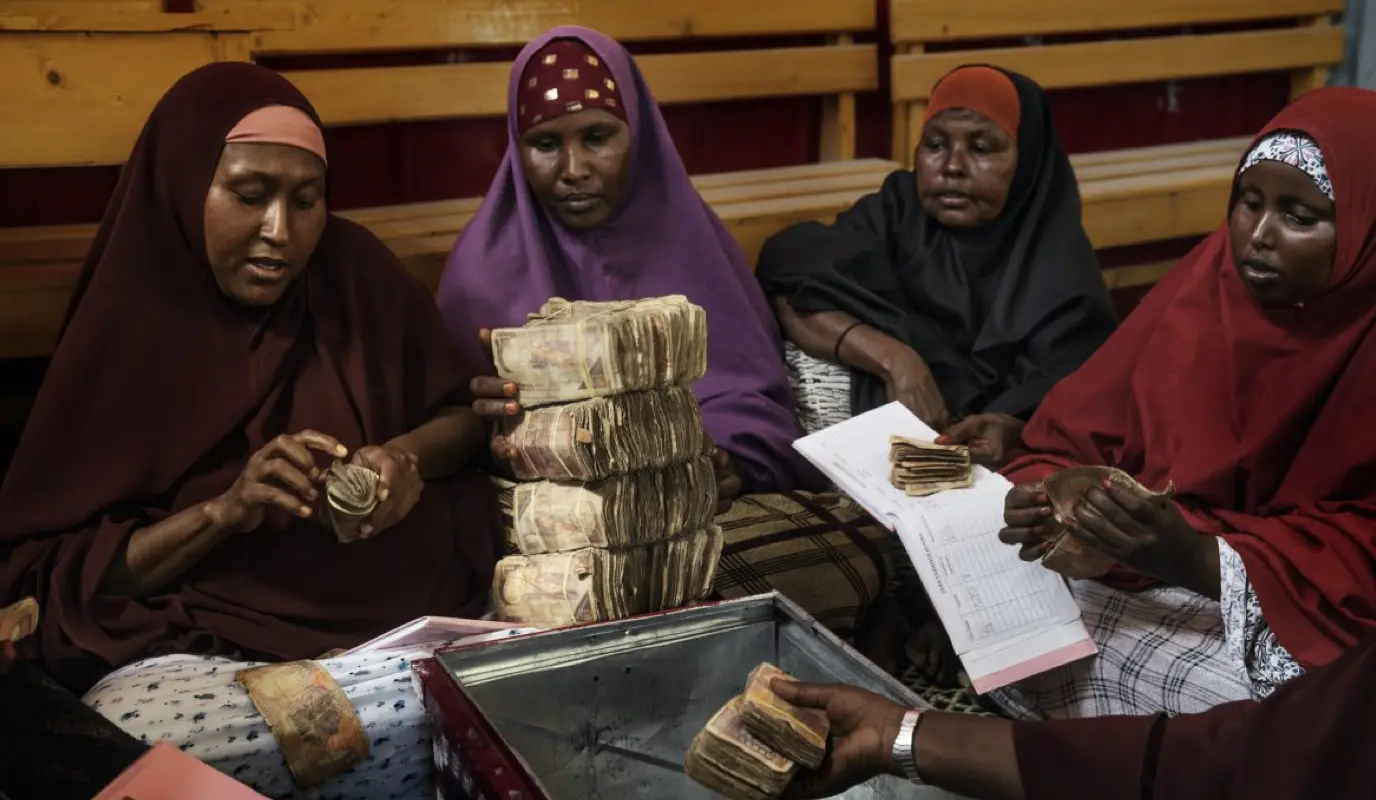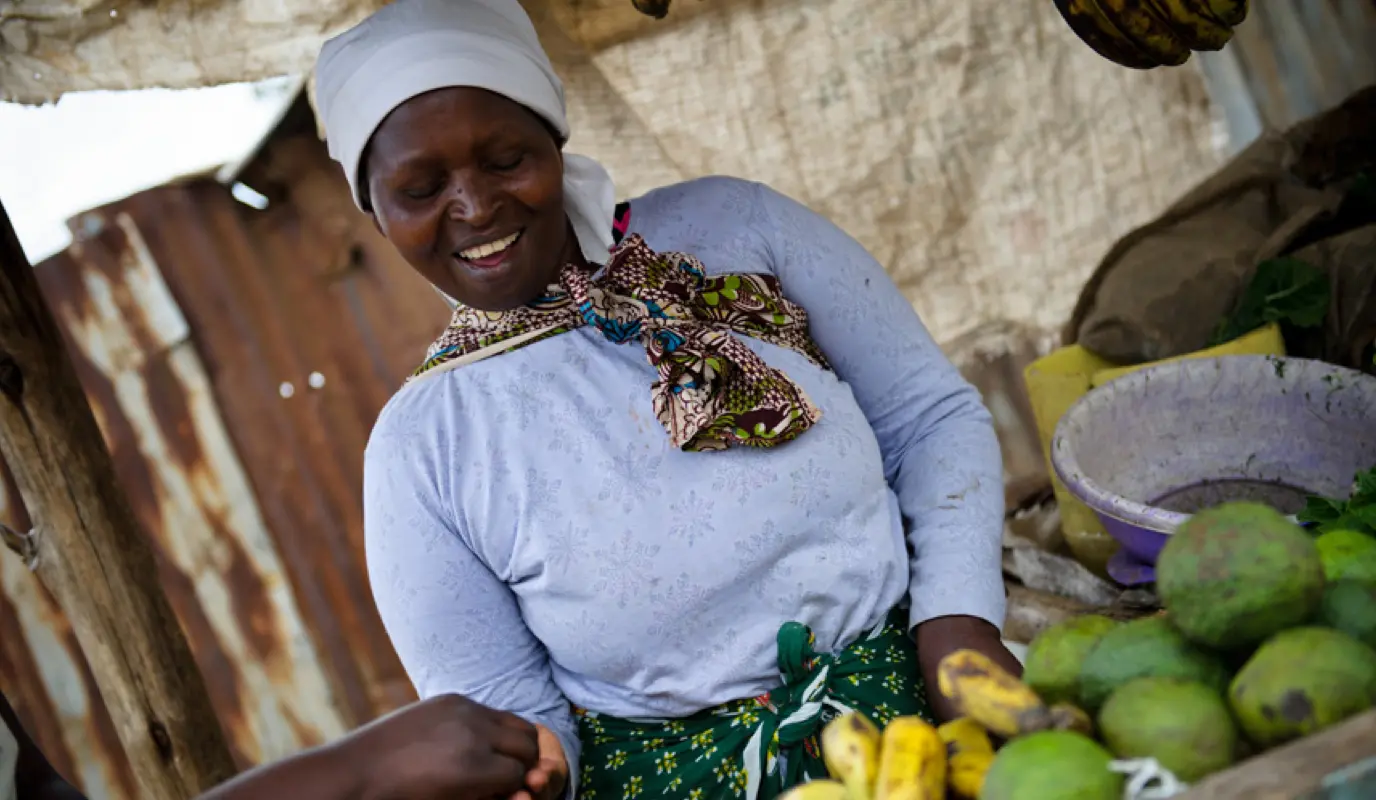What We Do
Our work: Livelihoods
Our livelihoods programs address some of the underlying problems experienced by people trying to earn a living while also dealing with the challenges and setbacks of extreme poverty.
Read MoreThe traditional image of humanitarian aid and development work may be crates of supplies shipped in by land, air, and sea, and projects that allow families to create their own income. But sometimes, in order to make real progress, we have to challenge traditions.
Growing up, many of us heard some variation on a familiar theme: You can’t just give money to people in poverty, because that won’t fix the problem. For more than 25 years, however, we at Concern have proved that the opposite is true.
We’re not the only ones, either. “Time and time again, researchers have shown that free money may be the most efficient, the cheapest, and the most civilized way to combat poverty,” Dutch historian Rutger Bregman says in a 2014 TED Talk. “Counter to really harmful stereotypes, we saw that people made wise financial choices,” Claire Williams, CEO of Canadian nonprofit Foundations for Social Change, said of a cash transfer study the organization ran in partnership with the University of British Columbia in 2018.
“Cash transfers have been demonstrated to improve education and health outcomes and alleviate poverty in various contexts…A growing number of studies therefore indicate that concerns about the use of cash transfers for alcohol and tobacco are unfounded.” David Evans and Anna Popova wrote for a study co-published by the World Bank and Stanford University in 2014. (They summed up the point more concisely for the World Bank’s blog: “Do the poor waste [cash] transfers on booze and cigarettes? No.”)
The traditional image of humanitarian aid and development work may be crates of supplies shipped in by land, air, and sea, and projects that allow families to create their own income. But sometimes, in order to make real progress, we have to challenge traditions. Here’s how cash transfers work, why they work, and how we’ve seen that success firsthand.
"The name does exactly what it says on the tin: Cash transfers (also known as Cash and Voucher Assistance, or CVA) are payments made in cash to recipients. Sometimes these can be one-time payments made in a large lump sum. In other cases, they’re smaller payments made on a regular basis (such as biweekly or monthly), similar to an allowance or stipend. In our space, cash transfers are viewed as a form of social protection. As the name Cash and Voucher Assistance implies, sometimes these distributions are also vouchers which can be used for certain markets or specific items."
This is by no means an exhaustive list, but here are six quick arguments for why cash transfer systems work in fighting poverty:
First and foremost, cash is cheaper. It’s far less expensive to bring cash into a country than it is to ship in tons of food. In many cases, the supplies that people wish to buy are already available in their communities, they simply can’t afford them.
In a functioning local market, importing shipments of items like grain can hurt a local economy by undercutting local producers and sellers. When people are given cash transfers, they spend it in local stores and stimulate their local economies.

In a humanitarian crisis, it can take weeks or even months to transport supplies into hard-to-reach areas. By contrast, once a cash distribution system has been put into place, vital funds can instantly reach thousands of people, regardless of their location. This has been made even more efficient thanks to mobile cash transfers, which can reach people via their phones within seconds.
In some conditions, cash-based assistance can be a safer option for providing rapid relief. Electronic transfers allow for remote delivery, which means that people don’t have to crowd at distribution sites for items, reducing risks like disease transmission or traveling in inclement weather. In 2020, 59% of Concern’s cash and voucher assistance was transferred electronically.

Cash gives people choice. Instead of giving each family one bag of grain, which may not be their most urgent need, cash allows them to purchase the exact resources that are most essential to them. For people working to build financial literacy, this is also a vital exercise in budgeting.
Just a small amount of seed funding can help people start their own business and become economically independent without requiring ongoing support from Concern or another organization.

In some cases, cash and vouchers are distributed in-person. Over the last ten years, electronic payment systems have become increasingly popular. Concern can simply transfer money or vouchers from our bank account into the recipient’s account, either via mobile phone or voucher system, a prepaid debit card, or chip-enabled smart card. These transfers are made using secure systems with accredited and regulated institutions and PIN protection for recipients.
Often, these transfers may come with some condition attached: recipients may receive it in exchange for attending a training course, participating in a larger income-generating program, registering with a local health authority, or enrolling their children in school. In 2021, 38% of Concern’s cash and voucher transfers were in some way conditional.
Where we can, we also provide extra support sourced from within communities. In Burundi, for example, mamans lumières (literally “Light Mothers”) are community-nominated representatives who work with Concern Worldwide and cash transfer recipients through every step of the process, from helping program participants to register, to informing them of upcoming distributions, to offering budget advice, to nutritional trainings. They also help Concern with vetting potential recipients and identifying people who should be receiving cash support.

Cash transfers are a key aspect of emergency response, whether it’s a sudden crisis (like a natural disaster or a pandemic), or protracted (such as ongoing displacement in Somalia or the Syrian crisis). The economic threat posed by COVID-19 lockdowns was one situation where we responded rapidly with increased voucher support to families whose income and food security were threatened by social distancing. Likewise, situations like 2019’s Cyclone Idai, which destroyed crops just before harvest, were another instance in which cash offset the losses that farmers experienced and provided quick relief for areas that were harder to access due to flooding and road closures. Within refugee communities, cash and voucher assistance also goes a long way as families are often restricted in where and how they can work.
One of the key uses of cash transfers outside of an emergency context is our Graduation model, where we use cash transfers at the beginning of the program. In this phase, regular cash transfers help families cover basic needs and build financial resilience as they take time to attend trainings, develop essential skills, and plan out a business or find a vocation based on their talents and passions.

In many cases, cash transfers are used as a means of building equity within marginalized groups. Sometimes we specifically tailor programs to groups, such as people living with disabilities, or female-headed households.
The biggest benefit of cash transfers is that they help to offset risk, one of the key drivers in the cycle of poverty. Often, communities and families living in extreme poverty lack a safety net in the event of an emergency. Without any other intervention, this can lead them to slide further and further below the poverty line, especially if they live in an area prone to hazards (such as conflict or climate change).

Beyond that, however, cash transfers can help in specific areas, especially health and nutrition.
In Niger, a Cornell University study of Concern’s cash transfer program showed significant nutritional improvements for children between the ages of six months and two years. Cash transfers, provided with mandatory health screenings and nutrition training, led to families eating more meals per day with greater nutritional diversity. This corresponded with a drop in the number of children who were underweight for their age. A similar study conducted the previous year by Tufts University suggested that child malnutrition rates were cut by as much as 7 percentage points thanks to cash transfers.
In Malawi, our first cash transfer program paired cash with food distribution in response to a 2005 food crisis. One mother described the ripple effect cash transfers had, not only for her family’s food security, but also for her children’s education: “[My] children were able to go to school every day because they had enough food every day.… They can’t go with empty stomachs. I was also able to wash their clothes for school because I could afford to buy soap.”
In Kenya, one of our early cash transfer programs was aimed specifically at women in an effort to build financial gender equality among families in the Kerio Valley. While the project didn’t undo the deep-seated gender roles and rules within society, it did help to highlight women’s roles as efficient partners and household managers. Women participating in the program also reported higher levels of confidence and self esteem as they showed they were able to use the resources given to them for the benefit of their entire families and strengthen inter-community ties by assisting other women.
A pioneer in cash distribution, Concern is a member of various working groups within the humanitarian and development sector, including the Collaborative Cash Delivery (CCD) Network and Alliance2015. We continue to work with different networks to develop and refine standards and guidelines. In 2020, we were the national co-lead of the Cash Transfer Working Groups in Central African Republic and Somalia (where we were also the regional chair of the Mogadishu Working Group). We were also the national co-chair of Burundi’s Social Protection Group.
Last year, Concern distributed over $41 million to approximately 1.75 million people. That sum represents 23% of our total spending on country programs for 2020, and nearly $3 million of it was specifically for COVID-19 relief. Much of our funding for these initiatives comes from Irish Aid and the European Civil Protection and Humanitarian Aid Operations (ECHO). We distributed cash in 18 out of the 24 countries where we work, with some of our largest contributions going to people in Somalia, Syria, Iraq, the Democratic Republic of Congo, Bangladesh, Malawi, Burundi, South Sudan, Kenya, Haiti, and Pakistan. Out of 70 programs that included cash transfers, 76% were for humanitarian aid, while 24% were part of longer-term development projects like Graduation.
